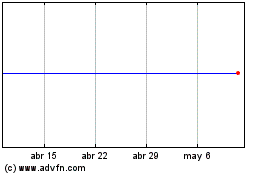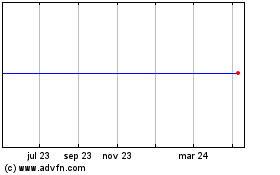The death toll in Haiti from Hurricane Matthew rose Thursday as
rescue teams moved across the country to distribute aid and assess
the devastation left by the storm.
Haiti's interior minister, Franç ois Anick Joseph, said at least
283 people had been killed, the Associated Press reported. The
country's civil protection agency, on its Twitter account, said 38
of the deaths were in Grand'Anse and 26 in Sud, the two departments
at the western tip of the peninsula that was directly in the path
of Matthew when it hit Tuesday as a Category 4 hurricane.
More than 21,000 people had been moved into shelters nationwide,
the agency said. The U.N. estimated that more than 1.1 million
people across the country were affected and at least 350,000 were
in need of assistance.
"Terrible things always happen to this country," said Alice
Blanchet, who is helping Haiti's Catholic Church coordinate relief
efforts with the Haitian government. Ms. Blanchet said that Haiti's
southwest countryside had been devastated. "Everything has been
flattened. The crops are gone, all the farms and animals," she
said.
The reluctance of residents to evacuate, even as mayors went
door-to-door urging them to leave ahead of the storm, probably made
the death toll worse. "I'm sure the number of dead will rise," she
said.
Road access to the peninsula was cut off when floodwaters washed
out a bridge at the town of Petit Goâ ve.
An assessment team of the U.S. Agency for International
Development flew over the area Wednesday, reporting "significant
destruction," including roofs ripped off houses, infrastructure
damage, communications outages and flooding.
"USAID is prioritizing food assistance, water and sanitation,
emergency shelter, and critical health care for communities in the
Grand'Anse and Sud regions," the agency said. It made $1.5 million
in food and other aid available this week. The U.S. Southern
Command sent personnel and helicopters to Haiti to assist with the
relief efforts.
Risks of flooding and mudslides continue in the wake of the
storm, and relief groups were especially worried about the
possibility of an increase in cases of cholera.
"We are very concerned that many families do not have access to
clean drinking water, which greatly increases the risk of cholera.
Even before the hurricane, more than 27,000 cases of cholera had
been reported this year alone," said Jessica Pearl, the Haiti
country director for relief organization Mercy Corps.
Cholera has claimed the lives of nearly 10,000 Haitians over the
past six years, according to international medical organization
Partners in Health, which supports 12 health centers in Haiti.
"We anticipate a massive increase of cases after the hurricane,
because of the flooding and mostly because there is actually a
shortage of drinking water in the southern peninsula," said Dr.
Charles-Patrick Almazor, the group's chief medical officer in
Haiti. "Very few people have access to clean drinking water;
sanitation still remains a huge challenge for Haiti."
Public hospitals recently suffered a long strike, and the
situation after the hurricane could exacerbate the crisis, he
added.
"The number of health facilities in Haiti are not enough
compared to the need. There are some in the southern peninsula that
will not be able to operate properly because their local staff
might be injured, displaced or victims somehow," Dr. Almazor
said.
Partners in Health's facilities weren't damaged by the storm,
although they expect to receive patients from other parts of the
country, "especially from the affected areas," he added.
John Hasse, director for relief group World Vision in Haiti,
said the signs of damage grew worse as teams moved further into
rural areas.
"These areas are not heavily populated but just very vulnerable
because they're on the side of hills, near the oceans and rivers
and heavily deforested," he said. "The entire NGO community is
worried about cholera and other water borne disease outbreak."
Loss of crops and livestock is a major problem in a country
where about 40% of people make their livelihood from agriculture,
much of it small-scale. U.S. nonprofit Heifer International, which
works with farming families in Haiti's south, said the storm-struck
areas of the country were scenes not only of human tragedy but also
economic disaster.
"The loss of agriculture is severe. Most of the crops are gone.
Many of the farm fields are like landfills. They're full of trash,
sea water, gravel and other debris. This will make it difficult for
people to start producing soon," said the group's country director
in Haiti, Hervil Cherubin. "We're very worried about the country's
future in terms of food security."
Around 5 p.m. EDT Thursday, Hurricane Matthew was moving over
the Bahamas, with the center about 100 miles from West Palm Beach,
Florida, a Category 4 storm with winds up to 140 miles an hour, the
National Hurricane Center in Miami reported.
In its passage through the Caribbean over the past week, it also
caused four deaths in the Dominican Republic, one in Colombia and
one in St. Vincent and the Grenadines, according to The Associated
Press.
Cuba suffered extensive damage but no casualties as the storm
crossed its eastern tip.
Write to Anthony Harrup at anthony.harrup@wsj.com
(END) Dow Jones Newswires
October 06, 2016 21:55 ET (01:55 GMT)
Copyright (c) 2016 Dow Jones & Company, Inc.
Twitter (NYSE:TWTR)
Gráfica de Acción Histórica
De Jun 2024 a Jul 2024

Twitter (NYSE:TWTR)
Gráfica de Acción Histórica
De Jul 2023 a Jul 2024
